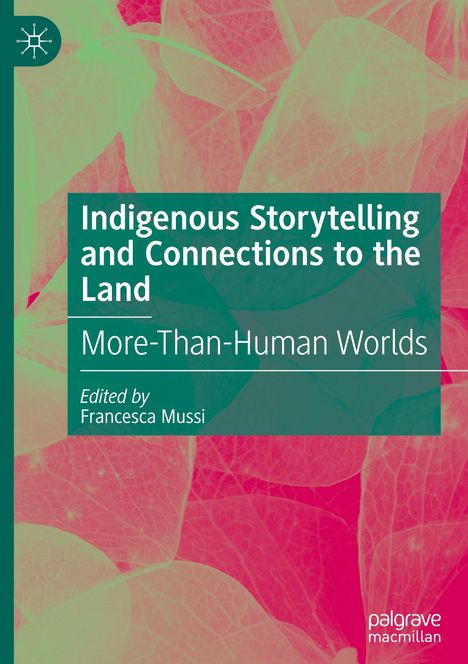Indigenous Storytelling and Connections to the Land, Gebunden
Indigenous Storytelling and Connections to the Land
- More-Than-Human Worlds
(soweit verfügbar beim Lieferanten)
- Herausgeber:
- Francesca Mussi
- Verlag:
- Springer International Publishing, 09/2024
- Einband:
- Gebunden, HC runder Rücken kaschiert
- Sprache:
- Englisch
- ISBN-13:
- 9783031655906
- Artikelnummer:
- 11970185
- Umfang:
- 348 Seiten
- Nummer der Auflage:
- 2024
- Ausgabe:
- 2024
- Gewicht:
- 563 g
- Maße:
- 216 x 153 mm
- Stärke:
- 24 mm
- Erscheinungstermin:
- 14.9.2024
- Hinweis
-
Achtung: Artikel ist nicht in deutscher Sprache!
Klappentext
This book builds on the perspective that, for Indigenous peoples, relations to the land are familial, intimate, intergenerational, spiritual, instructive, and life nourishing, and it is these relations that Western societies sought to destroy as part of their colonial projects of territorial conquest and exploitation of resources. Positioning storytelling as a research methodology and a model of decolonial practice, this edited collection seeks to explore the following key questions: how does Indigenous storytelling contribute to understanding Indigenous identity and the crucial role of the land in Indigenous ways of life? How can Indigenous storytelling subvert colonial narratives of the land? How can Indigenous storytelling contribute to addressing colonial exploitations of the land and its resources? Can Indigenous storytelling become a rich mode for the investigation of current climate crises? And, finally, how does storytelling assist Indigenous peoples in restoring their intimate relations to the land and its natural gifts? Through critical analysis of a unique range of Indigenous storytelling practices, including fiction, performative art, new media platforms, archaeological findings and personal live-experienced stories, this collection aims to examine the interplay between colonialism and current environmental challenges, and to expose the impacts ¿ past, present, and future ¿ of Western worldviews on Indigenous connections to the land, whilst simultaneously bringing to the fore Indigenous ethos of care and land custodianship.


